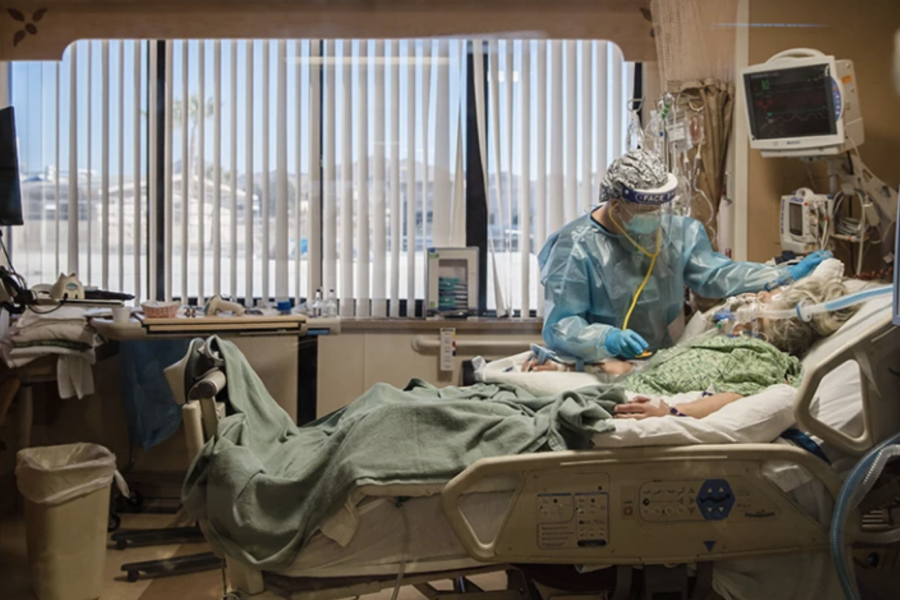Nature Immune genes could play a part in the risk of needing intensive care when infected with SARS-CoV-2.
An analysis of DNA from more than 24,000 people who had COVID-19 and required treatment in intensive care has yielded more than a dozen new genetic links to the risk of developing extreme illness from the disease.
The study, which was published on 17 May in Nature1 and has more than 2,000 authors, highlights the role of the immune system in fuelling the later stages of particularly severe COVID-19. The results could one day contribute to the development of therapies for COVID-19 — and potentially other diseases that cause acute respiratory distress or sepsis.
“These are likely to be processes that are active in other conditions,” says Kenneth Baillie, an intensive-care specialist at the University of Edinburgh, UK, and lead author on the study. “Everything that we’ve done in COVID will, I think, be relevant to other groups of patients that we haven’t identified yet.”
Team effort
Much of the data were collected from people who were infected with SARS-CoV-2 during the first waves of the pandemic in the United Kingdom. At that time, many intensive-care staff members were terrified of spending time on the ward, says Baillie. A coronavirus outbreak in 2003 caused by the related virus SARS-CoV had a mortality rate of about 10% and had hit health-care workers particularly hard. “We were nervous,” says Baillie. “Certainly, in the first wave of the pandemic, and for some people in subsequent waves, it seemed like a considerable personal risk.”
Despite their fear and the frenzy of providing care at the onset of the pandemic, scores of health-care workers took on the added burden of enrolling participants in studies that investigate how genetics might have contributed to disease severity. Many of the participants were on ventilators, and enrolling them meant long discussions with relatives who were going through some of the most difficult times of their lives, says Baillie. The result was an effort called GenOMICC, which researchers hope will help to improve treatment options for COVID-19 and other conditions in future pandemics.
